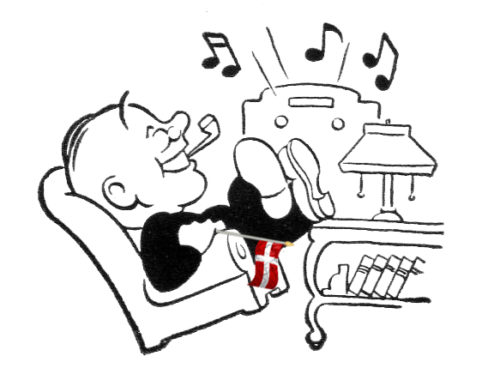In some countries, such as the US, “working sick” is a badge of honor. You are supposed to be so dedicated to your team or to the assignment that you come to work even if you have a bad cold or a slight fever.
In Denmark, the opposite is true. If you feel you’ve got the beginnings of something that could be contagious, particularly a stomach virus, you are considered a better team member if you stay home that day and care for your health. You are not expected to work from home or answer emails if you are ill.
It’s also considered OK to take a day or two off if you have a sick child at home, although in these cases you may be asked to participate in a phone meeting or some other work-related activity while your little darling sleeps.
Don’t use a sick day unless you’re really sick
One thing that’s not considered OK is to call in sick when you really just want a day off for some other reason. (In that case, you should ask for a “personal day”, which generally comes out of your annual vacation allotment.)
Danish workplaces are built on trust. If it comes out that you were not actually ill but said you were, that breakdown in trust could be the first step towards a termination.
Maybe you know in advance that you’ll need some personal time off from work – say, if relatives are coming to town, or if you have an important religious holiday. Book the days off as far ahead as possible so your boss can schedule around it.
“Stress” and colleagues who suffer from it
Given the relatively low number of working hours and the extensive social safety net, it might surprise you that the number of employees who “go down with stress” is extremely high in Denmark.
“Stress” is defined as being so overwhelmed with work or your working situation that you begin to suffer physical symptoms, such as insomnia or stomach pain. It’s particularly common among female employees who are raising children in addition to working full-time, but it can happen to anyone, in particular people working in a poorly-defined job or with a difficult boss.
Many companies have stress hotlines you can call if you’re starting to experience symptoms of stress. These are usually run by private health insurers engaged by the company. The goal is to step in and work to treat your stress before you have to take time off from work.
Hotline or not, many workers do “go down with stress” and disappear from the office for weeks and sometimes months. When they come back, they often appear slightly fragile and will probably have shortened work hours.
Try not to be cynical about people suffering from stress, or point out that it’s poverty-stricken people from your home country who know what stress really is. Stress is taken very seriously in Denmark.
.
Buy Kay’s books about Denmark on Amazon, Saxo, Google Books, Apple Books, Barnes & Noble Nook, or via our webshop.
Image mashup copyright Kay Xander Mellish 2025
Read also:
Decoding your Danish pay slip and understanding your Danish taxes
How to handle a Danish business meeting
What to wear to work in Denmark: Quiet colors, quality cut and fabric
Your first day at work in Denmark: Handshakes, passwords, and several people named Mette
Trailing spouses and working in Denmark
Motivating Danish employers: Tips for foreign managers
Networking in Denmark: 5 useful tips for making Danish business contacts
Secrets of socializing with your Danish colleagues
The Danish art of taking time off
Your free daily banana and five weeks off: Job benefits in Denmark
Why job titles aren’t that important in Denmark
The Danish job interview
Job search in Denmark: Your Danish cover letter plus LinkedIn plus two magic words
Job hunting in Denmark: Putting together your Danish CV
Fine-tuning your approach to the Danish job market
Finding a job in Denmark: Some tips from my experience
Is joining a union a waste of money? And what is the difference between a union and an A-kasse?
Will I ever be promoted? Plus, how to leverage your annual review





